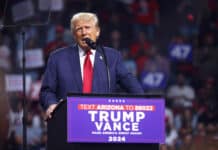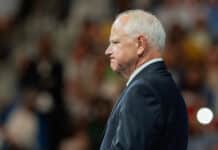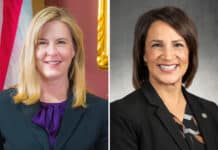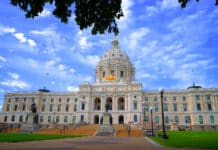The Minnesota House DFL launched their agenda for the 2020 legislative session, which is set to begin on February 11.
First, House Democrats want to spend half a billion dollars of the projected $1.3 billion budget surplus on early childhood education. That is an issue the DFL thinks it can sell politically, but could easily cause the need for tax increases if the budget surplus dries up.
Another problem for the House DFL is that this is one-time spending. Under the DFL plan, $250 million will go to “early learning scholarships,” $60 million to voluntary pre-K programs, and $190 million will be added to the state’s already-generous child care assistance program, or CCAP. CCAP was in the news in the last few years due to fraud that has occurred, where childcare providers worked with parents to bill for children not under their care.
Overall, the push is for lower childcare costs in the state. Indeed, Minnesota has extremely high childcare costs compared to the rest of the nation. But many Republicans point out that Minnesota’s childcare costs are high precisely because the state already plays an expanded role—relative to most other states—in the form of both subsidizing childcare, and regulating childcare providers.
The DFL also seeks to close the large gap in performance and graduation rates between black American students and white American students in Minnesota. According to DFL House Leader Melissa Hortman, (D-Brooklyn Park), early childhood education is the answer.
Republicans, however, counter that other DFL policies limit choices of black Minnesotan students stuck at failing public schools, which worsens the achievement-gap.
Next, the DFL seeks an insulin program which would make drugmakers cover some insulin costs, and wants to pursue paid family leave. Democrats feel that this would empower workers, while Republicans caution that this could force a greater burden on many small and medium-sized businesses.
The DFL is also seeking to have all of the state’s electricity generated from carbon free sources. The GOP starkly opposes this objective, and Republicans point out that renewables don’t always provide the energy needed during the winter months.
Democrats are also seeking enhanced gun-control, via a red-flag law and universal background checks. Republican Senate Majority Leader, Paul Gazelka, counters that current Minnesota law already allows authorities to take firearms away from dangerous individuals, while respecting due process. In fact, Minnesota already has some of the strictest gun laws in the nation. The problem, says Gazelka, is that current law is not being enforced.
Another fight between the DFL and the GOP may erupt over bonding, or the process of the state issuing debt to pay for projects across the state. Some House Democrats are pushing the state to borrow far more than what is tolerable to Republicans, and more than even Democrat Governor Tim Walz asked for in his budget proposal.


















